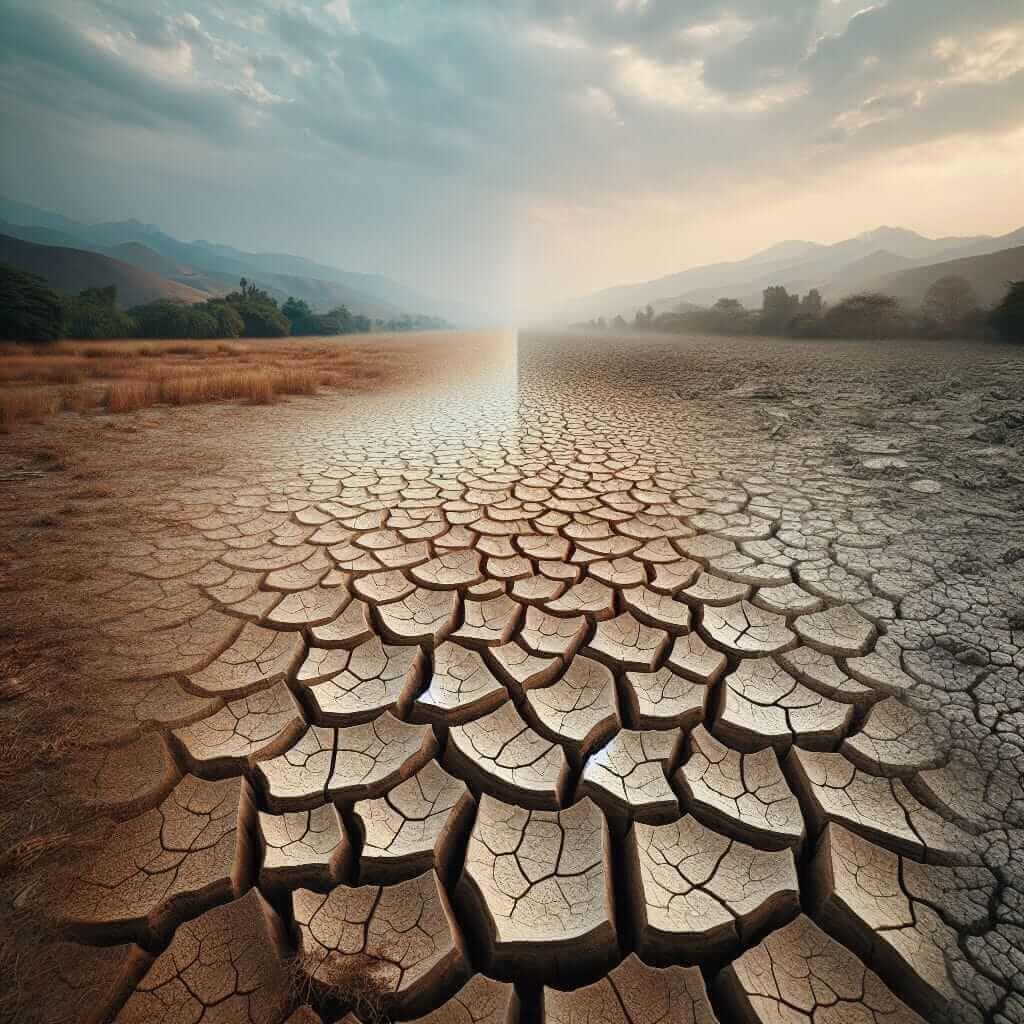The IELTS Reading test is a crucial part of the IELTS examination, evaluating your ability to understand and interpret written texts. The topic of climate change’s effects on global water resources is highly relevant and has appeared in various forms on past IELTS exams. Given the ongoing discourse around environmental issues, it’s conceivable that this subject could feature prominently in future tests. In this article, we will create a comprehensive IELTS Reading practice test on the topic, including detailed answers and explanations. This practice test aims to help you prepare effectively, understand potential pitfalls, and expand your vocabulary and grammar knowledge.
Practice Test
Reading Passage
Climate Change and Global Water Resources
Climate change is significantly impacting global water resources, with consequences for both quantity and quality. The rise in global temperatures leads to altered precipitation patterns, resulting in both droughts and floods. These changes threaten the availability of fresh water, which is critical for human consumption, agriculture, and industry.

The melting of glaciers and polar ice caps contributes to rising sea levels, which can lead to coastal flooding and salinization of freshwater aquifers. Additionally, warmer temperatures increase evaporation rates, diminishing the water available in rivers, lakes, and reservoirs.
Ecosystems are also affected; habitats that rely on specific water conditions face disruption, potentially leading to loss of biodiversity. In agriculture, the unpredictability of water supply affects crop yields and farming practices. Moreover, the increased frequency of extreme weather events—such as hurricanes, typhoons, and heavy rainfall—can cause both immediate and long-lasting damage to water infrastructure and resources.
Water quality is another concern. Higher temperatures enhance the proliferation of harmful pathogens and algae in water bodies, jeopardizing the safety of drinking water. Pollution and contaminants, exacerbated by runoff during heavy rains, further degrade water quality, posing additional risks to human health and the environment.
Questions
Multiple Choice
-
What is one primary effect of rising global temperatures on water resources?
a. Increased groundwater recharge
b. Decreased evaporation rates
c. Altered precipitation patterns
d. Stable water availability -
How do melting glaciers and polar ice caps affect coastal regions?
a. They reduce sea levels
b. They cause salinization of freshwater aquifers
c. They enhance freshwater availability
d. They improve water quality
Identifying Information (True/False/Not Given)
- Climate change has no impact on the frequency of extreme weather events.
- Ecosystems dependent on particular water conditions are under threat due to climate change.
- Higher temperatures decrease the presence of harmful pathogens in water bodies.
Sentence Completion
- The unpredictability of water supply affects ___ and ____.
- Pollution and contaminants in water are exacerbated by ____.
Answer Key and Explanations
-
c. Altered precipitation patterns
- Explanation: The passage specifically mentions that rising global temperatures lead to altered precipitation patterns, causing both droughts and floods.
-
b. They cause salinization of freshwater aquifers
- Explanation: The passage explains how rising sea levels due to melting glaciers and polar ice caps can lead to coastal flooding and salinization of freshwater aquifers.
-
False
- Explanation: The passage clearly states that climate change increases the frequency of extreme weather events, contradicting the statement.
-
True
- Explanation: The passage notes that ecosystems relying on specific water conditions face disruption due to climate change, which is a threat.
-
False
- Explanation: The passage indicates that higher temperatures enhance the proliferation of harmful pathogens and algae, which means the statement is false.
-
The unpredictability of water supply affects crop yields and farming practices.
- Explanation: This information is mentioned in the passage under the section discussing agriculture.
-
Pollution and contaminants in water are exacerbated by runoff during heavy rains.
- Explanation: This detail is provided in the section discussing water quality.
Common Mistakes
- Misunderstanding the main idea of the text: Always read the passage carefully and identify the key points.
- Overlooking specific details: Pay close attention to facts and figures presented in the passage.
- Making assumptions: Base your answers only on the information given in the text.
Vocabulary
- Evaporation (noun) /ɪˌvæp.əˈreɪ.ʃən/: The process of turning from liquid into vapor.
- Salinization (noun) /ˌsælənaɪˈzeɪʃən/: The process by which a non-saline soil becomes saline, e.g., the addition of salts by seawater.
- Proliferation (noun) /prəˌlɪf.ərˈeɪ.ʃən/: Rapid increase in numbers.
Grammar Point
- Conditional Sentences: Used to discuss hypothetical or real situations and their outcomes. For example: “If global temperatures rise, evaporation rates will increase.”
- Structure: If + present simple, will + base verb (First Conditional)
- Example: “If the pollution continues, the water quality will degrade further.”
Tips for High IELTS Reading Score
- Practice Regularly: Daily reading practice enhances comprehension skills.
- Expand Vocabulary: Knowing a wide range of words helps in understanding the context.
- Time Management: Allocate time for each section to ensure you complete the test.
- Understand the Question Types: Familiarize yourself with different question formats and practice accordingly.
By attempting this practice test and studying the explanations, you can improve your understanding of the IELTS Reading section and perform better in your actual exam. For related reading material, you can also visit our article on the same topic and another comprehensive discussion.